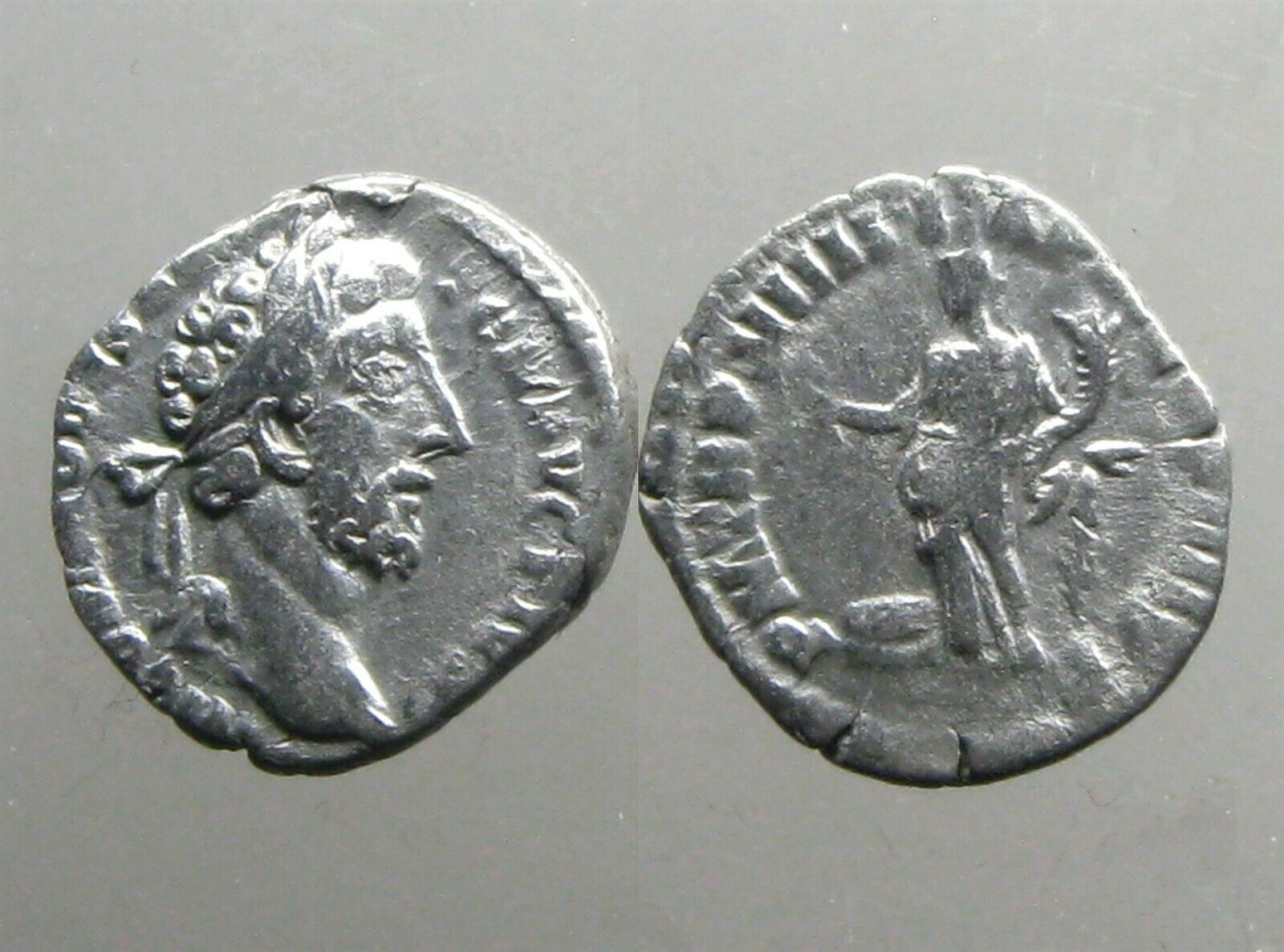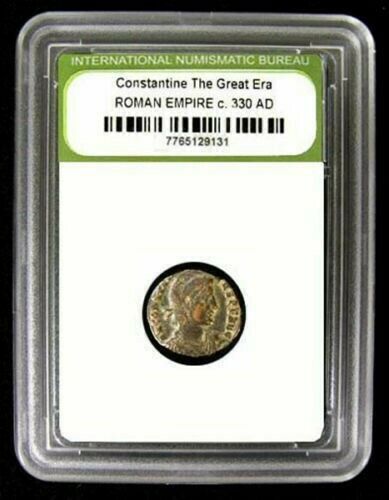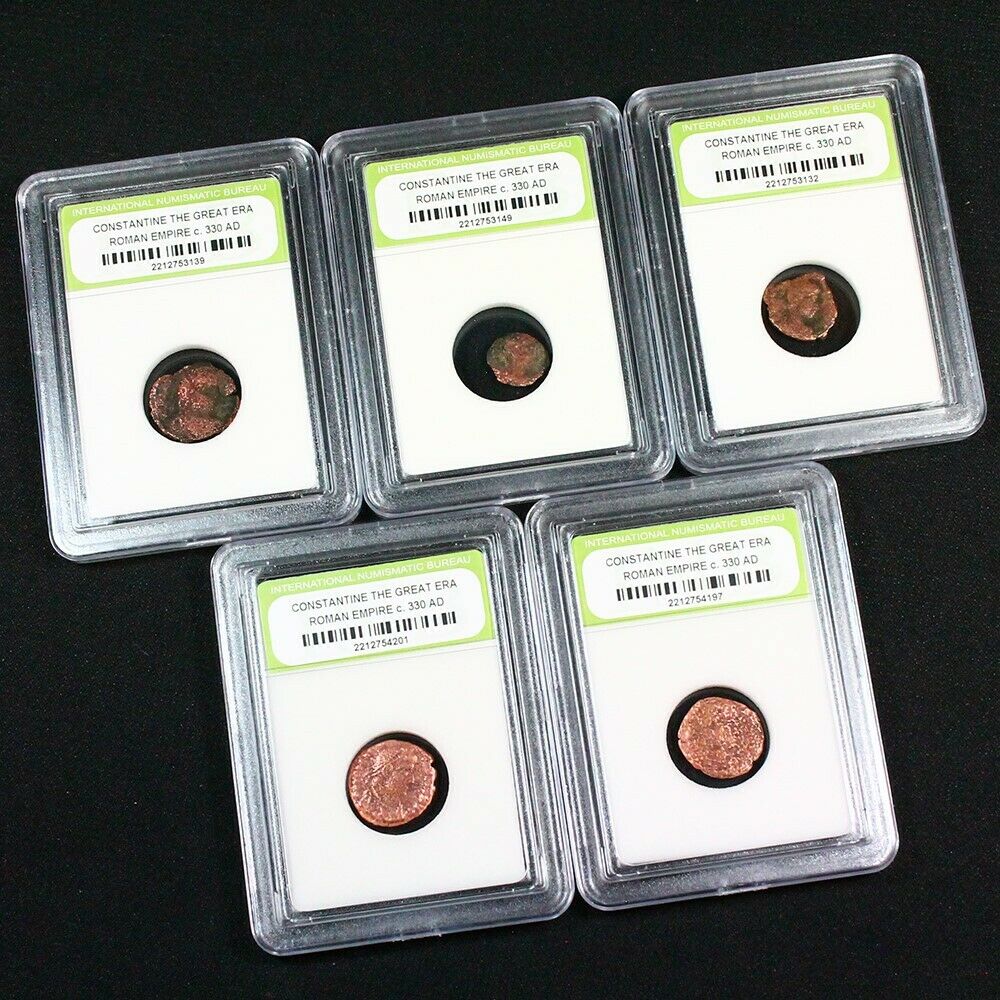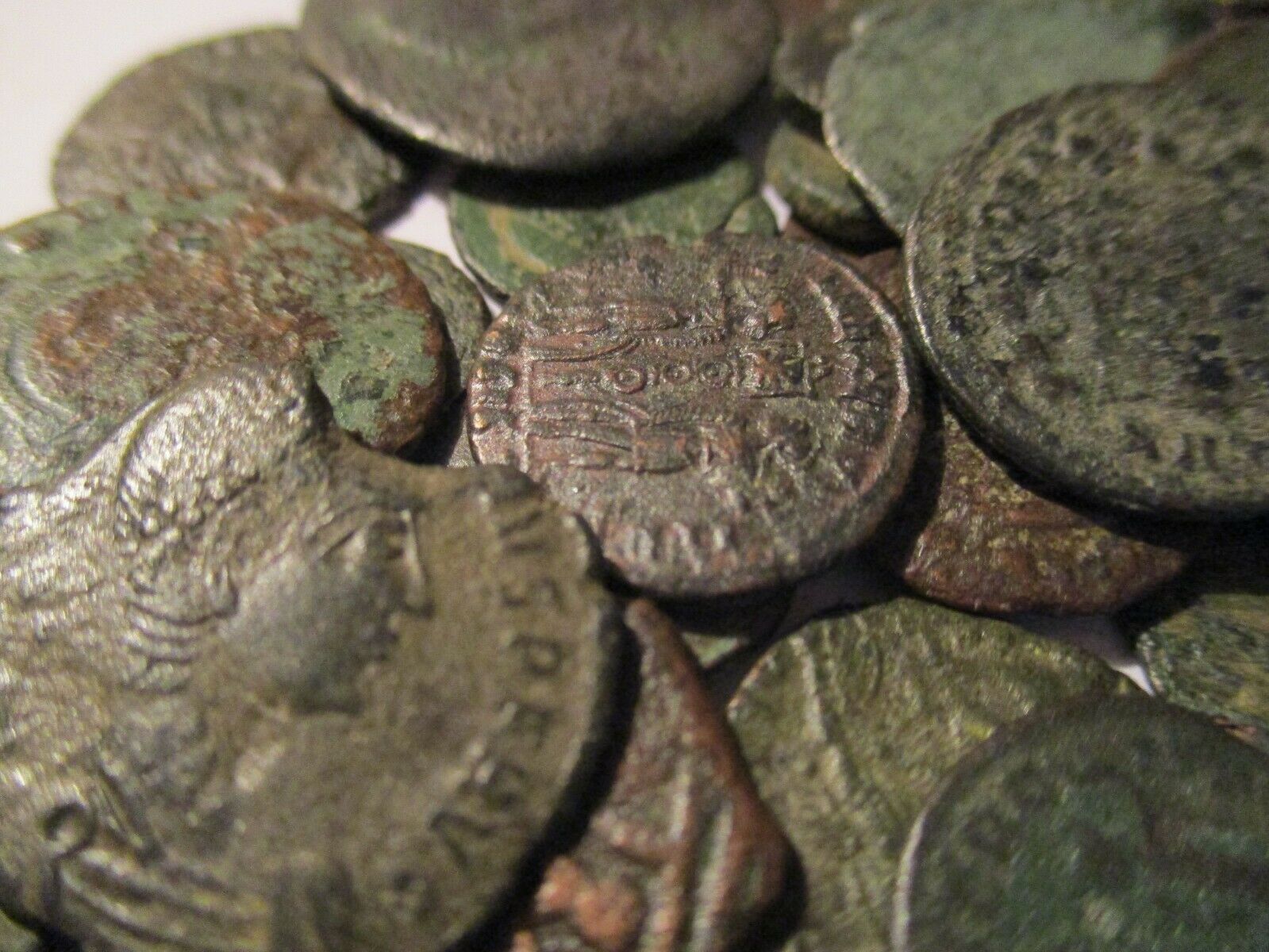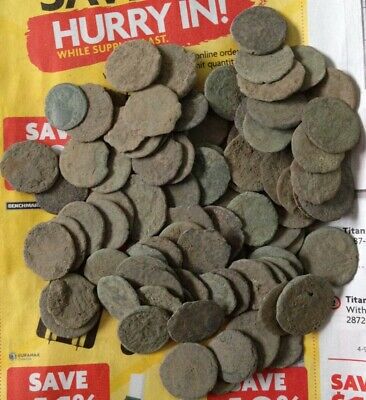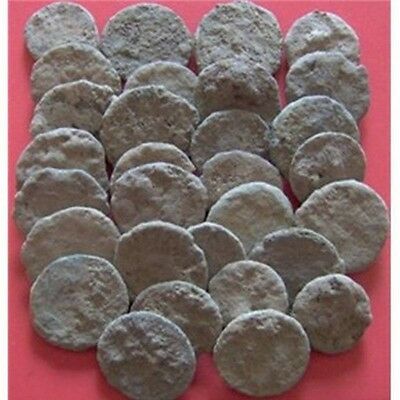-40%
COMMODUS SILVER DENARIUS_________Roman Imperial________FELICITAS & CADUCEUS
$ 13.72
- Description
- Size Guide
Description
19R047FRASCATIUS ANCIENTS
A BEAUTIFUL ROMAN IMPERIAL SILVER DENARIUS OF COMMODUS FROM 177 - 192 AD.
The father of Commodus was Marcus Aurelius, one of the best and noblest of the Roman emperors. But Commodus, who ascended to the imperial throne when only 19, was one of the worst.
THE SIZE IS 17.2 MM AND 2.38 GRAMS.
RIC 74
OBVERSE – M COMMODVS ANTON AVG PIVS, laureate head right
REVERSE – P M TR P VIIII IMP VI COS IIII P P, Felicitas standing left, holding caduceus and cornucopiae; modius at feet
COMMODUS
The father of Commodus was Marcus Aurelius, one of the best and noblest of the Roman emperors. But Commodus, who ascended to the imperial throne when only 19, was one of the worst. 180 A.D., the year Commodus came to power, is widely regarded as the turning point in Imperial history. It was beginning of a decline that was to last over 200 years, and result in the destruction of the Roman Empire in Western Europe.
The first thing that Commodus did upon the death of his father was to conclude a hasty peace with the Marcomanni and Quadi tribes in Germany that his father had been warring with for many years. He did this so that he could return immediately to Rome, where he quickly gave himself up to pleasures.
After only three years, he had already made many enemies, and assassination plots began to spring up. One of the first attempts on his life was initiated by his sister Lucilla. When Commodus found out about the attempt he executed many of his enemies and became increasingly paranoid and tyrannical. At the same time, his self-indulgence seemed to know no bound. He kept a harem of over 300 women. He spent lavishly on wild animal and gladiatorial exhibitions, and went so far as to compete in the gladiatorial games himself, although always against disadvantaged opponents. This behavior scandalized the populace, who had been privileged to live under the reign of very competent leaders for well over a century, and led to many assassination attempts, all of which served to increase his tyrannical and erratic behavior.
Finally in 190, a major fire broke out in Rome and burned a large segment of the city. Commodus attempted at this point, to rename the entire city after himself in return for providing the funds to rebuild it. He also attempted to rename all the months of the year after himself, and to have himself deified. Finally, in 192 A.D., he was strangled in his sleep by a gladiator named Narcissus, with the cooperation of one of his favorite mistresses.
Fortunately for Rome, during the whole reign of Commodus, the borders of the empire were competently guarded by generals who, for the most part, had risen under Aurelius. But the seeds of incompetence, indulgence, and corruption had been sown. Commodus was succeeded by Pertinax, who lasted only three months before he also was assassinated.
LEGACY OF THE ROMAN EMPIRE
During the later republic and most of the empire, Rome was the dominant power in the entire Mediterranean basin, most of western Europe, and large areas of northern Africa. The Romans possessed a powerful army and were gifted in the applied arts of law, government, city planning, and statecraft, but they also acknowledged and adopted contributions of other ancient peoples—most notably, those of the Greeks, much of whose culture was thereby preserved.
The Roman Empire was distinguished not only for its outstanding army—the foundation upon which the whole empire rested—but also for its accomplishments in intellectual endeavours. Roman law, for example, was a considered and complex body of precedents.
Rome’s roads were without match in the ancient world, designed for comparatively fast transportation and adapted to a wide variety of functions: commerce, agriculture, mail delivery, pedestrian traffic, and military movements. Roman city planners achieved unprecedented standards of hygiene with their plumbing, sewage disposal, dams, and aqueducts. Roman architecture, though often imitative of Greek styles, was boldly planned and lavishly executed. Triumphal arches commemorated important state occasions, and the famous Roman baths were built to stir the senses as well as to cleanse the body.
Finally, Latin, the language of the Romans, became the medium for a significant body of original works in Western civilization. Cicero’s speeches, the histories of Livy and Tacitus, Terence’s drama, and above all the poetry of Virgil are all part of the legacy of the Roman Empire
A True Auction Environment –
Auctions start at $.99 with No Minimums and No Reserves.
FULL UNCONDITIONAL GUARANTEE OF AUTHENTICITY
If the buyer feels that the coin received is not as represented - just return the coin and the buyer will be fully reimbursed for the cost of the coin; the original shipping charge; and the cost to ship the coin back… No Questions Asked. If the buyer is not happy, please let me know, and I will do what I can to make it right.
NOTE: Frascatius is a life member (LM #6864) of the American Numismatic Association (ANA). Frascatius fully complies with the ANA Member Code of Ethics.
If you have any questions regarding this auction, please click on “Ask seller a question”.
I will be more than happy to provide you with a response.
Visit My eBay Store: Frascatius Ancient Coins
For those new to ancient coins, please contact me, and I will e-mail to you my "Beginners Guide for Ancient Coin Collectors - FAQ".
SHIPPING:
To the U.S. = .00 Insured Flat Rate
International = .50 Insured Flat Rate
Multiple items may be grouped at no additional charge at the above rates.
All items will be carefully packaged, protected & insured (private insurance).
Powered by SixBit's eCommerce Solution
